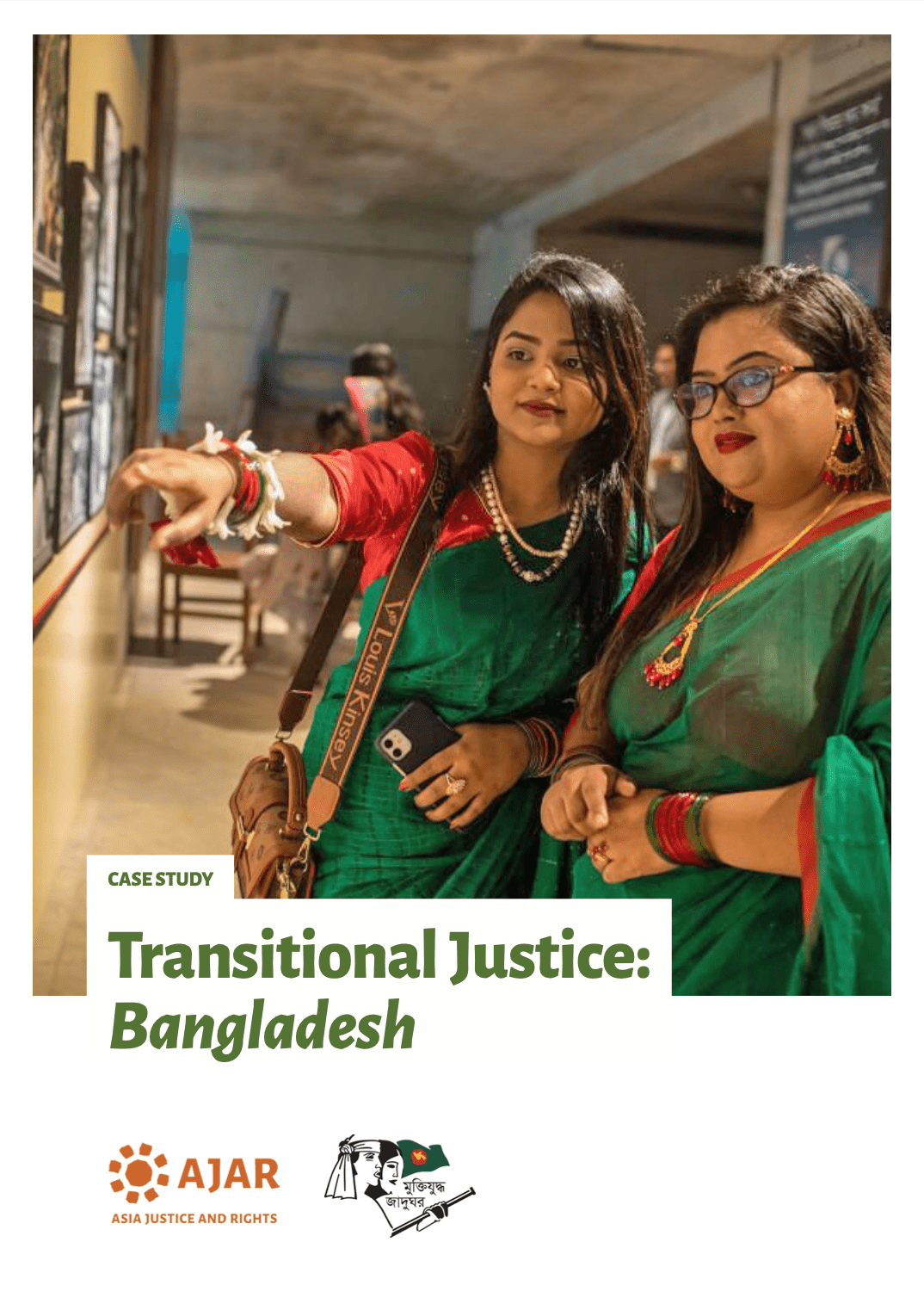For the last 50 years, since the liberation war, Bangladesh has been working on transitional justice. The path has been rocky, as the country dealt with major issues like economic crises and the impact of natural disasters. Despite these challenges, by 1973, 73 special tribunals had been set up, and 2,884 cases resolved. Later, a tripartite agreement was signed addressing humanitarian issues, including the release of Pakistani POWs and ‘stranded Bangladeshis’. Since that time, Bangladesh has continued working for peace and democracy by ensuring perpetrators are held to account, and recognizing and compensating freedom fighters.
This case study is written jointly by Asia Justice and Rights (AJAR) and Liberation War Museum (LWM) Bangladesh.
